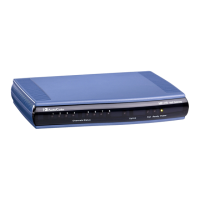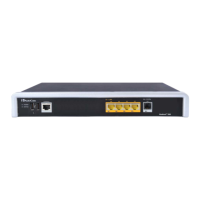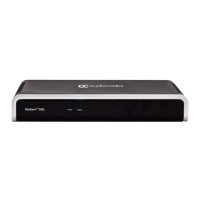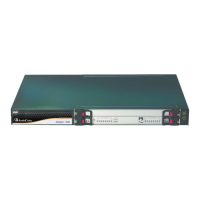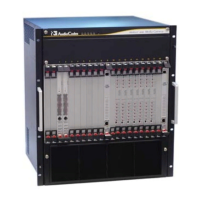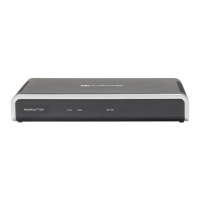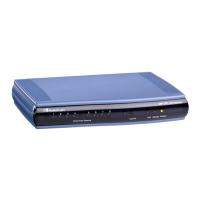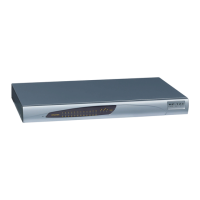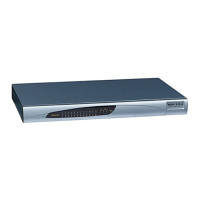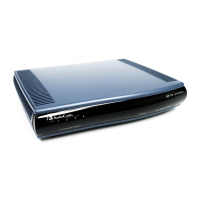the device obtains the AOR for the user by stripping the
parameter. The resulting URI is the AOR.
For example:
AOR: sip:alice@example.com
GRUU: sip:alice@example.com;opaque="kjh29x97us97d"
Defines the string that is used in the SIP request header
User-Agent and SIP response header Server. If not
configured, the default string 'AudioCodes product-name
s/w-version' is used (e.g., User-Agent: Audiocodes-Sip-
Gateway-MediaPack/v.5.80.010.006). When configured,
the string 'UserAgentDisplayInfo s/w-version' is used (e.g.,
User-Agent: MyNewOEM/v.5.40.010.006). Note that the
version number can't be modified.
The maximum string length is 50 characters.
[UserAgentDisplayInfo]
Web/EMS: SDP Session Owner Determines the value of the Owner line ('o' field) in
outgoing SDP messages.
The valid range is a string of up to 39 characters. The
default value is 'AudiocodesGW'.
For example: o=AudiocodesGW 1145023829 1145023705
IN IP4 10.33.4.126
[SIPSDPSessionOwner]
Web/EMS: Subject Defines the value of the Subject header in outgoing INVITE
messages. If not specified, the Subject header isn't
included (default).
The maximum length is up to 50 characters.
[SIPSubject]
Web: Multiple Packetization Time
Format
EMS: Multi Ptime Format
Determines whether the 'mptime' attribute is included in the
outgoing SDP.
[MultiPtimeFormat]
[0]
None = Disabled (default)
[1]
The 'mptime' attribute enables the device to define a
separate Packetization period for each negotiated coder in
the SDP. The 'mptime' attribute is only included if this
parameter is enabled, even if the remote side includes it in
the SDP offer. Upon receipt, each coder receives its 'ptime'
value in the following precedence: from 'mptime' attribute,
from 'ptime' attribute, and then from default value.
PacketCable = includes the 'mptime' attribute in the
outgoing SDP -- PacketCable-defined format
Web/EMS: 3xx Behavior Determines the device's behavior regarding call identifiers
when a 3xx response is received for an outgoing INVITE
request. The device can either use the same call identifiers
(Call-ID, Branch, To, and From tags) or change them in the
new initiated INVITE.
[3xxBehavior]
[0]
Forward = Use different call identifiers for a
redirected INVITE message (default).
[1]
Web/EMS: Enable P-Charging Vector
Redirect = Use the same call identifiers.
Enables the addition of a P-Charging-Vector header to all
outgoing INVITE messages.
[EnablePChargingVector]
[0]
Disable = Disable (default)
[1]
Enable = Enable
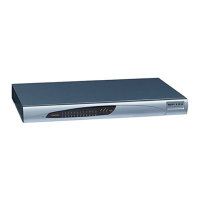
